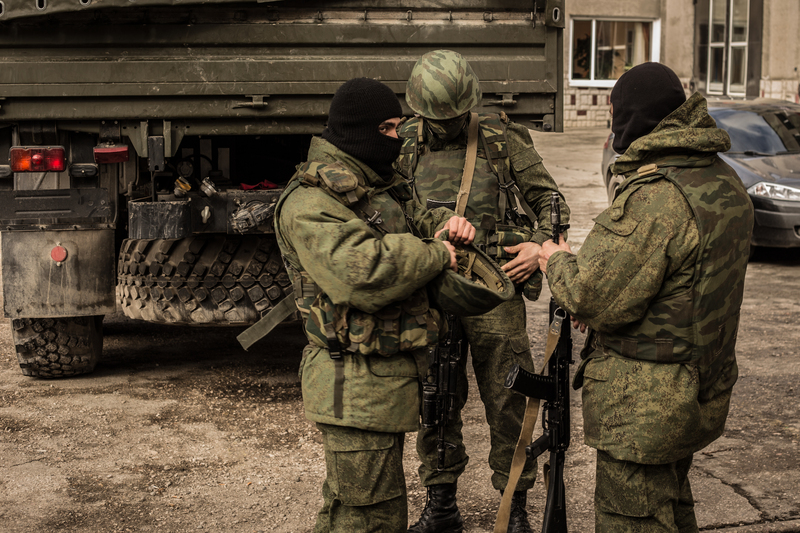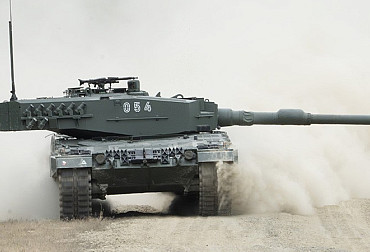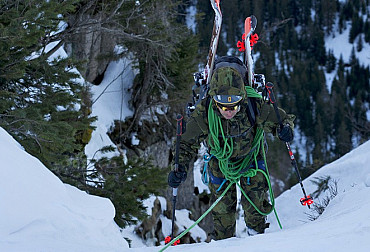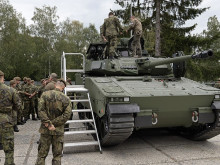Support for Ukraine from the Czech Republic will probably be only material and diplomatic
According to many experts and intelligence services, Ukraine is on the brink of war with Russia. According to the media (e.g. The Wall Steet Journal or Politico, citing three official sources from Washington and Europe), Wednesday 16 February is even a possible date for a Russian invasion of Ukraine. Many embassies have already asked their citizens to leave the country, embassies are closing and the diplomatic corps is withdrawing. In this context, there are many questions about how the Czech Army would react in the event of a military conflict. In view of international conventions, probably not, as it has no mandate.
 Picture: Ukraine is on the brink of war with Russia, according to many experts and intelligence services. According to the media (e.g., The Wall Steet Journal or Politico, citing three official sources in Washington and Europe), Wednesday, February 16, is even a possible date for a Russian invasion of Ukraine. (illustration photo) | Shutterstock
Picture: Ukraine is on the brink of war with Russia, according to many experts and intelligence services. According to the media (e.g., The Wall Steet Journal or Politico, citing three official sources in Washington and Europe), Wednesday, February 16, is even a possible date for a Russian invasion of Ukraine. (illustration photo) | Shutterstock
Ukraine has long been linked to the Czech Republic; just look at the number of Ukrainians working in the construction sector, as well as in other services and industries. According to official statistics, nearly 200 000 Ukrainians live or work in the Czech Republic, making up the largest number of foreigners in our country, approximately 30%. Unofficial statistics speak of an even higher number of Ukrainians on the territory of the Czech Republic.
Ukraine has never been part of the European Union or the North Atlantic Treaty Organisation, which is somewhat worrying in the context of rising tensions and possible military aid. Should NATO wish to react in the event of a military Russian-Ukrainian conflict, it could be seen as interfering in their affairs. According to the information available, NATO certainly does not want to go to war with Russia, and Russia is aware of this. The only response of NATO or the EU to Russia at the moment is therefore various sanctions, diplomatic negotiations or economic pressure. In turn, free supplies of material aid, weapons systems and ammunition are flowing into Ukraine from the US and Europe. Examples include the supply of NLAW disposable anti-tank grenade launchers from the UK, the supply of anti-tank and anti-aircraft missiles from the Baltic States, and the recently approved supply of an unspecified number of Piorun portable surface-to-air missile systems by Poland.
Also, the Army of the Czech Republic, or rather the Ministry of Defence, recently supported Ukraine with the delivery of 4006 pieces of 152 mm calibre fragmentation long-range ammunition (the delivery was approved by the Government of the Czech Republic on 26 January 2022). However, this is probably the only thing that can be done at present. Sending our troops to Ukraine is certainly not on the agenda, the most that can be assumed is some type of mentoring or possible sending of a contingent of Czech police officers. Although Defence Minister Jana Černochová recently said in an interview with Seznam news that "we would take Ukraine's request for Czech soldiers very seriously," she was very cautious about the specifics of the possible involvement of our Army.
In any case, more emphasis will now be placed on the internal security of the Czech Republic within the framework of the activities of the Ministry of the Interior. This is for a logical reason. In the event of a Russian-Ukrainian armed conflict, there would probably be an influx of refugees into European countries, especially those with a large Ukrainian population, which undoubtedly includes the Czech Republic.
At the beginning of February, the Commander-in-Chief of the Armed Forces of Ukraine, General Valery Zaluzhnyj, visited the Czech Republic. During the discussion, General Zaluzhnyj briefed the commanders of the Armed Forces of Ukraine on the current security situation in Ukraine, the state of reforms and the readiness of the Ukrainian Armed Forces. On the other hand, Zaluzhnyj was assured by the Chief of the General Staff of the Armed Forces, General Opata, that "Ukraine is a partner of the Alliance, which we want to support in the reform of the armed forces and the development of military capabilities, especially in the field of logistics, military police and medical support."
And there is talk of further visits to the Czech Republic by senior Ukrainian officials, which only confirms the very good relations between the two countries. However, this has not always been the case. For example, in 2011, Ukraine expelled two staff members of the military section of the Czech embassy, when, according to Kiev, they "committed actions incompatible with their diplomatic position". At the time, they were allegedly collecting information that was subject to state secrecy.
It is clear from the above that the Czech Republic is among the countries that express unequivocal support for Ukraine. The question remains as to what form this support will continue to take, which will also depend on what the coming days will bring.





















